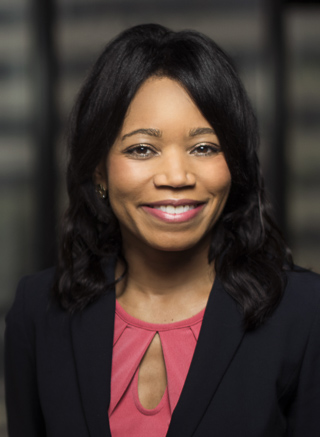Supporting Black-Owned Businesses and Nonprofit Organizations Through Pro Bono
The Advocate
According to a 2017 report, more than half of the companies that have Black owners are turned down for loans—a rate twice as high as white business owners.[1] Even when Black business owners get approved for bank loans, their rate of failure to receive full financing is the highest among all categories by more than 10%.[2] In May 2020—at the peak of the coronavirus epidemic—less than one half of 1% of Black business owners reported receiving government benefits for businesses affected by the pandemic compared to about 9% of non-Black business owners.[3]
The business failure rate in the U.S. within the first year is nearly 20%.[4] For Black-owned businesses in Alabama, research shows that nearly 80% fail within the first two years.[5] Over the past two years, news coverage of the killing of unarmed Black men and women in the U.S. has placed a global spotlight on the economic and social injustice that persists in our country. And the dismal statistics on Black businesses reveal just how deep inequality in the U.S. can cut across racial lines.
Racism, discrimination, predatory lending, a significant absence of economic and business resources in Black communities, and a lack of awareness about how to properly start and maintain a business are among the key reasons why Black businesses do not survive. Black entrepreneurs often find themselves with no alternative but to pull the plug. For those businesses that do survive, they do not grow as quickly or are as prosperous as businesses owned by other ethnic groups.
On April 29, 2022, Bradley Arant Boult Cummings LLP (Bradley) and Legal Services Alabama (LSA) launched the Black Small Business and Nonprofit Community Clinic to remove some of the barriers that have prevented Black-owned businesses and Black-led nonprofit organizations from achieving the same level of success as their non-Black counterparts. The clinic is the second in Bradley’s footprint to provide this type of pro bono legal support to Black business owners and nonprofit leaders. In January 2021, the firm began a similar clinic in Nashville, Tennessee, in partnership with the Arts & Business Council of Greater Nashville and its Volunteer Lawyers & Professional for the Arts program. The firm sees both clinics as a way to bridge the gap between the legal needs of those who cannot afford or access legal services and the resources available to meet those needs.
Bradley’s Birmingham, Alabama office is the firm’s flagship office and its largest per capita. Recognizing the historic and systemic racial inequities that have made it challenging for the Black business community to thrive in Birmingham, Bradley partnered with LSA to join the cause for racial equity and to make a lasting impact in the local community. The Black Small Business & Nonprofit Clinic is held on the fourth Thursday of each month and takes place during the lunch hour, from 12:00-1:00 pm. The clinic currently operates virtually, with attorneys meeting with clinic participants by telephone or video conference. Bradley and LSA expect to transition the virtual meetings to in-person operations in the future, although they will continue to allow clients to participate remotely to assure the service remains accessible to those who need it.
As part of the clinic, Bradley attorneys provide legal consultations on business-related topics, including business entity formation, contracts, local, state, and federal regulations, tax, intellectual property, and governance issues, among other topics. To qualify for pro bono services through the clinic, businesses and nonprofits must consist of at least 50% Black ownership, have ten or fewer employees, and meet financial guidelines established by the Legal Services Corporation. LSA handles the initial screening of clinic applicants and hosts the intake application for the clinic on its website at https://legalservicesalabama.org/black-business-and-nonprofit-community-clinic-intake-form/.
To date, Bradley attorneys and attorneys in LSA’s John Lewis Legal Fellowship Program have assisted over 50 new and establish business owners and nonprofit leaders with organizations throughout Birmingham. Attorneys and administrative staff have contributed over 100 hours providing legal consultations to clinic participants. In a few instances, Bradley attorneys have continued working with individuals they met through the clinic in order to help them resolve time-sensitive issues.
Attorneys have met with a business owner who wanted to change the structure of his music entertainment business; leaders of a nonprofit organization who needed to update their organization’s incorporation documents; and the founder of a medical transport business who needed an attorney to review an operating agreement. The participants have reported positive feedback from their experiences, with one sharing, “[My attorneys] were a Godsend! They went above and beyond to ensure our non-profit documentation was clear, concise, and compliant.”
Bradley will continue to explore opportunities to support Black businesses and nonprofits in its other locations. In June, the firm joined the Charlotte Legal Initiative to Mobilize Businesses, a pro bono initiative dedicated to providing free business-oriented legal services, including to minority, LGBTQ, veterans, and disabled business and nonprofit leaders throughout Charlotte, North Carolina. Among other things, the firm views these pro bono initiatives as opportunities to help rectify historical inequities and advocate for positive change in the communities where Bradley attorneys live and practice.
Republished with permission. This article, "Supporting Black-Owned Businesses and Nonprofit Organizations Through Pro Bono," was published in The Advocate, Volume II Issue I in October, 2022.
[1] Board of Governors of the Federal Reserve System (U.S.), 2017. "Report to the Congress on the Availability of Credit to Small Businesses - September 2017," Reports and Studies 89204, Board of Governors of the Federal Reserve System (U.S.).
[2] Id.
[3] See Michael Sasso, “Black Business Owners’ Ranks Collapse by 41% in U.S. Lockdowns,” available at https://www.bloomberg.com/news/articles/2020-06-08/black-business-owners-suffer-41-drop-in-covid-19-lockdowns (last accessed August 15, 2022).
[4] See Katherine Gustafson, “The Percentage of Businesses That Fail and How to Boost Your Chance of Success,” available at https://www.lendingtree.com/business/small/failure-rate/ (last accessed August 15, 2022).
[5] WRBC, “University of Alabama Studies Why Some Black Businesses are Failing in the State,” available at https://www.wbrc.com/2021/10/13/university-alabama-studies-why-some-black-businesses-are-failing-state/ (last accessed August 15, 2022).

